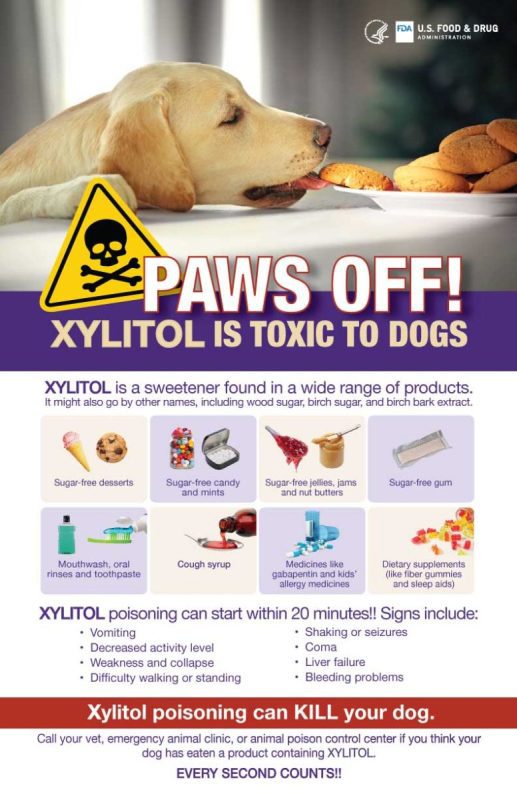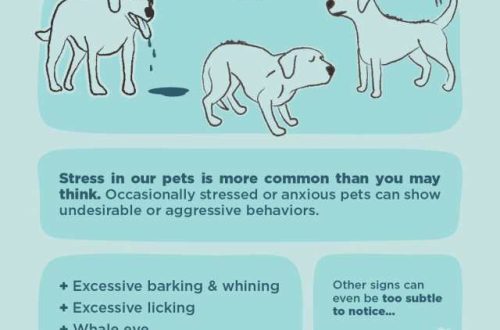
Why Xylitol Sweetener Is Bad For Your Dog
Xylitol is toxic to dogs
Your furry friend may be impatiently waiting for a piece of food to fall off the table on the floor so he can immediately swallow it. As its owner, it is your responsibility to ensure that this does not happen. It may happen that your food contains xylitol, which is harmful and even deadly for dogs.1,2.
What is xylitol?
Xylitol is a naturally occurring sugar alcohol used as a sweetener in many products such as candy, chewing gum, toothpaste, mouthwashes, and some sugar-free products. Xylitol is also used in pharmaceuticals in chewable vitamins, drops and throat sprays.
Signs of xylitol poisoning
According to the Animal Poison Control Center, dogs that have eaten a product containing more than 0,1 g of xylitol per 1 kg of their body weight are at risk of low blood sugar levels (hypoglycemia) and liver disease.2. Even if the xylitol content of a food is variable, one or two gums containing xylitol can be poisonous to dogs of all sizes.
According to the Food and Drug Administration, signs that your dog has ingested a product containing xylitol may include:
- Vomiting
- Lethargy
- Movement coordination disorder
- Nervous disorders
- Convulsions
Please note that symptoms such as a drop in blood sugar and other problems may not appear for up to 12 hours.3.
What to do if you think your dog ate a xylitol product?
If you suspect your dog has ingested a product containing xylitol, contact your veterinarian immediately. Most likely, he will be forced to examine the pet and take blood tests to find out if the glucose level has dropped and / or if liver enzymes have activated.
How to avoid poisoning?
To reduce the possibility of xylitol poisoning in your dog, keep all your food (especially diet food containing xylitol), candy, chewing gum, medicines and medicines in a safe place out of the reach of the animal. Keep bags, wallets, coats, any other clothes and containers out of his reach. Dogs experience the world through their sense of smell, so any open bag or pocket is an invitation to stick your head in and explore.
1 http://www.fda.gov/AnimalVeterinary/NewsEvents/CVMUpdates/ucm244076.htm 2 Dunayer EK, Gwaltney-Brant SM. Acute liver failure and bleeding disorders associated with xylitol intake in eight dogs. Journal of the American Veterinary Medicine Association, 2006;229:1113–1117. 3 (Animal Poison Center Database: Unpublished Information, 2003-2006).





